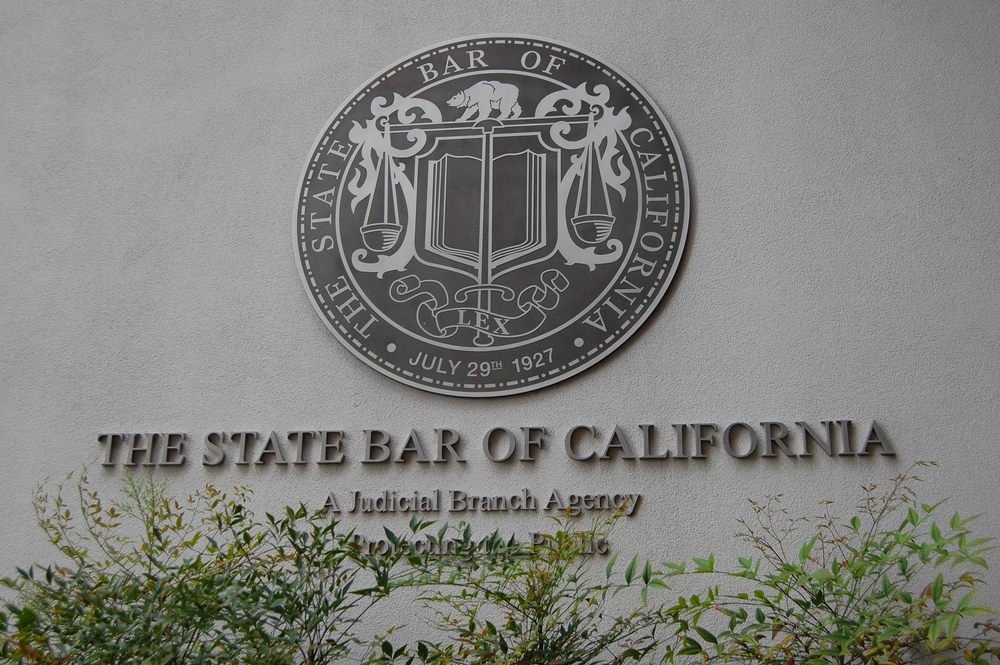After criticism, California bar's working group will focus on sandbox and trim membership ranks

Image from Shutterstock.com.
In the aftermath of sharp criticism from the state legislature, a State Bar of California panel tasked with developing ideas for how nontraditional legal services providers can enhance access to justice will resume its work but with a narrower focus and cuts to its membership.
The bar’s board of trustees voted 8-2 on Friday to discharge members of the Closing the Justice Gap Working Group without California-specific experience and have the panel prioritize crafting a proposal for a regulatory sandbox where new services and business models could be tested out.
The board’s actions come on the heels of of a December letter from two powerful state lawmakers raising concerns about the corporate interests behind future sandbox entrants and the potential loosening of prohibitions on nonattorney ownership of law firms. The lawmakers also said it appeared the bar had “chosen to divert its attention from its core mission of protecting the public and addressing the critical issues affecting the [attorney] discipline system.”
The bar put the working group’s activities on hold after receipt of the letter from the chairs of the California Legislature’s judiciary committees to provide time for dialogue and consideration of the outside input.
Bar staff and some board members said Friday they wanted to demonstrate through formal action that they were taking lawmakers’ and other stakeholders’ feedback seriously. They also highlighted that the working group has only been tasked with developing proposals for the board, and activities such as creating a sandbox would ultimately need to be approved by the board, California Supreme Court and the state legislature.
“It’s very rare that the state bar acts alone on something like this, and it certainly was never my thought or intention that we would do so here,” bar board chair Ruben Duran said during Friday’s meeting. “We’re talking about a fundamental shift in the way Californians get legal help that they need.”
The bar has now tasked the working group with specifying the roles that they seek the California Legislature and the state supreme court to fulfill “in setting the parameters for and/or approving the types of entities that would be permitted to operate in the sandbox, and the application (or exemption) of existing statutes and rules as they relate to sandbox participants.”
The panel has also been directed to adopt screening and monitoring procedures for the sandbox regulator “to reduce the risk that corporate interests will unduly influence or compromise professional judgment and objectivity in the delivery of legal services.”
Additionally, the panel will no longer be tasked with examining potential changes to lawyer advertising and lawyer referral service rules.
Some members of the panel have experience outside of California
As for the working group’s membership, a recent staff memo said revising the make-up of the panel could “address the perceived imbalance of members who lack California-specific experience.”
The four members on the roster listed as being based outside of California are co-vice-chair Rebecca Sandefur, an Arizona State University professor and an American Bar Foundation faculty fellow; James Sandman, president emeritus of the Legal Services Corporation; John Lund, the former president of the Utah State Bar; and Crispin Passmore, the former executive director of the Solicitors Regulation Authority in the United Kingdom.
A California bar spokesperson said Friday that it had yet to be determined which working group members would be discharged as a result of the board’s vote.
“We are still evaluating this issue and will apply a set of criteria to the determination of California-specific experience,” spokesman Rick Coca wrote in an email.
Sandefur, who previously taught at Stanford University for nearly a decade, says it would be unfortunate if the panel were to lose voices who have experience in other locations that have embraced regulatory reforms, including Utah and the United Kingdom. She also expressed concern about the possible loss of voices who are knowledgeable about legal services and consumers’ legal needs across the nation.
Lund and Sandefur played important roles in the creation of the Utah regulatory sandbox that launched in 2020 with the aim of allowing nontraditional legal services providers to operate in the state without fear of being accused of the unauthorized practice of law. More than 30 entities have been approved to operate in the sandbox, according to the website of Utah’s Office of Legal Services Innovation.
“I think Utah shows that you can sit down, develop some ideas about how to expand access to justice, and you can implement those ideas in a completely workable way,” said Sandefur, who was attending a Utah sandbox summit when reached Friday.
Sandefur said she also worried about the impact of limiting the proposals to enhance access to justice the California working group can develop.
“The purpose of the group is to come up with ideas about how to make things possible,” Sandefur says. “So, one thing to think about is: ‘If you narrow the scope and the focus, does it make some things that you want to achieve impossible?’”
Meanwhile, the California bar’s board unanimously approved a proposal Friday to task Duran with adding one nonlawyer bar board member and one attorney board member to the working group. Additionally, the panel’s September 2022 deadline to complete its work will be extended to a yet-to-be determined date.
“The changes made today by the board enable this important access initiative to move forward, addressing the concerns expressed recently by key stakeholders and ensuring greater involvement by representatives of the board,” Duran said in a statement.



